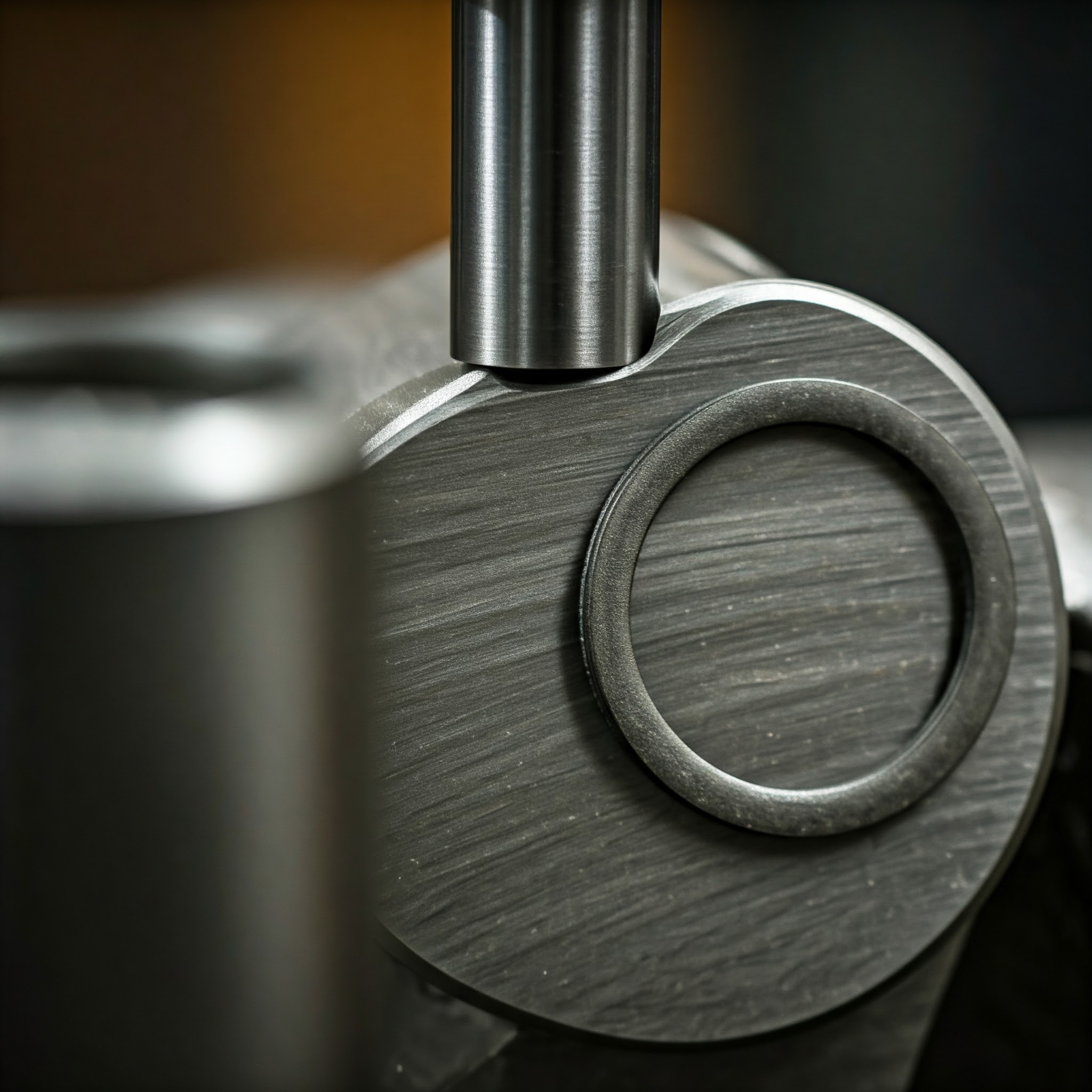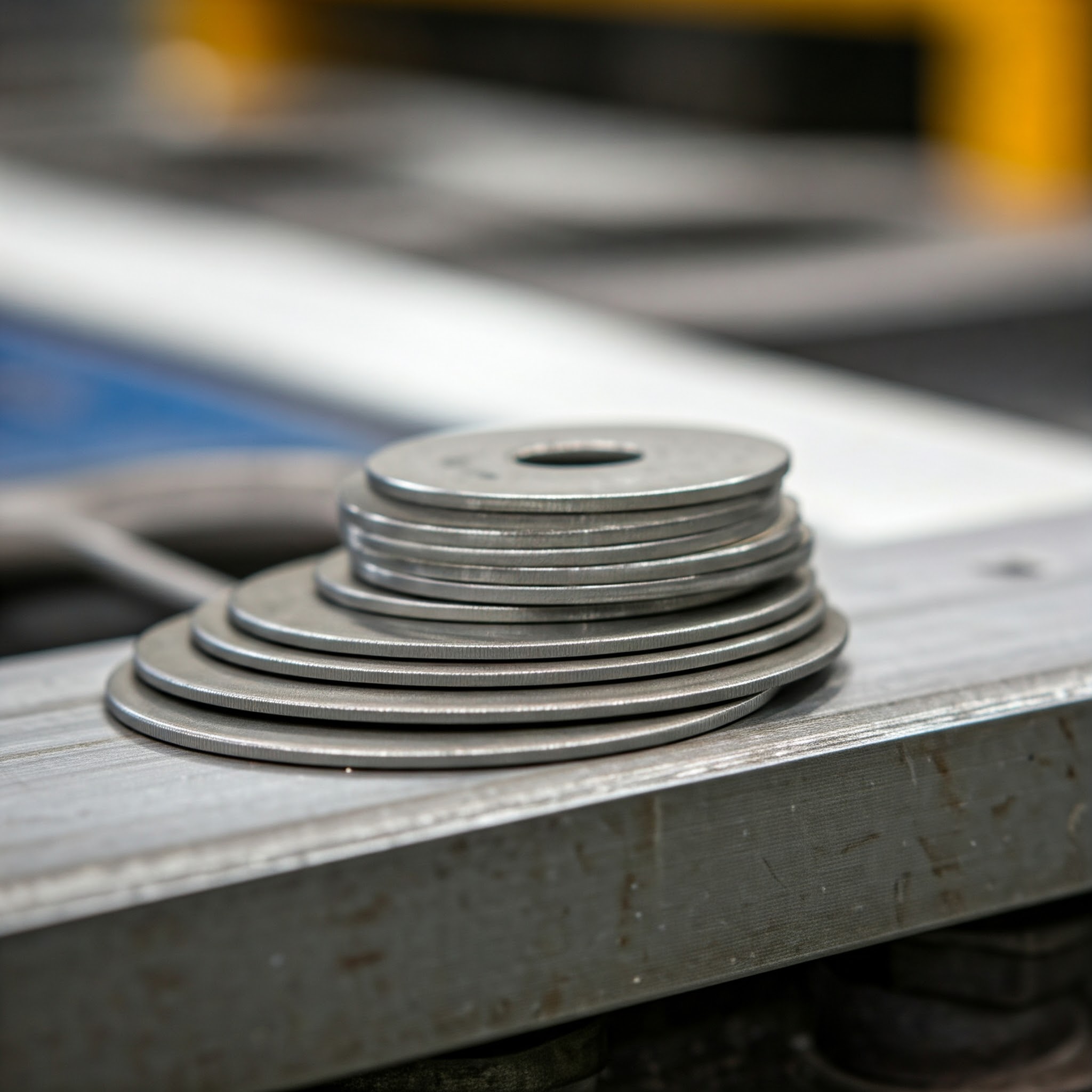The Ultimate Guide to Choosing the Right Shim Washer for Your Project

Shim washer manufactures might seem like a small and straightforward component, but their role in ensuring stability, precision, and durability in mechanical assemblies is crucial. Whether you're working on an industrial application or a DIY project, selecting the right Shim washer can make all the difference.
In this guide, I'll walk you through everything you need to know to make an informed decision when choosing shim washers, including types, materials, applications, and how to evaluate the best options for your project.
Table of Contents:
- What Are Shim Washers?
- Why Are Shim Washers Important in Your Project?
- Types of Shim Washers and Their Applications
- Material Options for Shim Washers
- How to Choose the Right Shim Washer
- Common Mistakes to Avoid When Selecting Shim Washers
- Where to Source High-Quality Shim Washers
- Conclusion
What Are Shim Washers?
Shim washers are thin, precision-engineered components used to fill gaps, adjust spacing, or provide support in mechanical assemblies. They are typically placed between two surfaces to achieve a desired level of alignment or spacing.
Think of shim washers as the unsung heroes of engineering and assembly projects. They ensure that everything fits perfectly, reducing wear and tear on components and enhancing overall efficiency.
Why Are Shim Washers Important in Your Project?
You might wonder why such a small component is so significant. Let me explain:
- Improved Precision: Shim washers help maintain precise alignments, which is critical in machinery and structural assemblies.
- Reduced Wear: By evenly distributing loads, shim washers prevent uneven wear and tear on components.
- Enhanced Stability: Shim washers provide additional stability, ensuring that parts remain secure under pressure.
- Cost Savings: Instead of replacing entire components, you can use shim washers to adjust or repair assemblies, saving time and money.
If your project requires precision, stability, and durability, the right shim washer is a must-have.

Types of Shim Washers and Their Applications
Choosing the right type of shim washer depends on your project's specific needs. Here’s a quick rundown of common types:
- Flat Shim Washers: Used to provide even spacing between surfaces. Ideal for leveling and alignment applications.
- Tapered Shim Washers: Designed to correct angular misalignments. Common in machinery setups.
- Slotted Shim Washers: Feature a slot for easy installation and removal without disassembling components.
- Precut Shims: Pre-manufactured in specific shapes and sizes for convenient use.
- Custom Shim Washers: Tailored to fit unique project requirements, often used in specialized industries.
Applications
- Automotive: Adjusting clearances in engine components and suspension systems.
- Industrial Machinery: Aligning shafts, gears, and other rotating components.
- Construction: Leveling structural elements or equipment.
- Aerospace: Ensuring precision in high-stakes mechanical systems.
Material Options for Shim Washers
The material of a Shim washer affects its performance, durability, and suitability for specific applications. Here are the most common materials:
Material Choices
- Stainless Steel Shims: Known for their corrosion resistance and strength. Perfect for outdoor or high-moisture environments.
- Brass Shim Sheets: Highly conductive and resistant to corrosion. Often used in electrical and decorative applications.
- Aluminum Shim Washers: Lightweight and corrosion-resistant, suitable for less demanding environments.
- Plastic Shims: Cost-effective and lightweight but not suitable for heavy loads or high temperatures.
Applications
- For outdoor or marine projects, go with stainless steel shims.
- If you’re dealing with electrical components, opt for brass shim sheets.
- For lightweight applications, consider plastic or aluminum shims.

How to Choose the Right Shim Washer
Now that you understand the types and materials available, let’s get into how you can pick the perfect shim washer for your needs.
Steps to Choosing a Shim Washer
- Understand Your Requirements: Identify the load, environment, and alignment needs of your project.
- Measure Accurately: Take precise measurements of the gap or space you need to fill.
- Select the Material: Choose a material that suits your project’s environment and load-bearing requirements.
- Check for Compatibility: Ensure the shim washer fits seamlessly with your other components.
- Consider Customization: If standard sizes or shapes don’t work, go for custom shim washers.
Common Mistakes to Avoid When Selecting Shim Washers
- Ignoring Material Quality: Low-quality shim washers may fail under pressure, leading to costly repairs.
- Using the Wrong Thickness: Misjudging the thickness of a shim washer can throw off your entire assembly.
- Overlooking Environmental Factors: Failing to consider corrosion, temperature, or moisture can reduce the lifespan of your shim washer.
- Choosing Incompatible Sizes: A poorly fitting shim washer can cause instability and wear.
Avoid these mistakes to ensure your project’s success.

Where to Source High-Quality Shim Washers
Finding the right supplier is as important as choosing the right shim washer. Here’s what to look for:
Trusted Shim Washer Manufacturers
- Look for manufacturers with a strong track record and positive reviews.
- Ensure they offer a wide range of materials and customization options.
- Check for certifications that indicate quality assurance.
Recommended Searches
Shim Manufacturers in India are known for producing high-quality shim washers at competitive prices.
Look for suppliers specializing in precut shims and customized shim washer solutions.
Conclusion
Choosing the right shim washer is more than just a technical decision—it’s a step toward ensuring the precision, durability, and success of your project. By understanding the types, materials, and selection criteria, you can make an informed choice that meets your needs.
Remember, the key lies in working with reliable Shim washers manufacturers and investing in high-quality components. So, take your time, do your research, and choose wisely.
About Sachin Shim
Our range of shims includes metal, machine, industrial, precision, adjustable, machinery, engineering, custom, and alignment shims. These shims are designed for various applications, such as machinery alignment, fine adjustments in industrial-grade machines, engineering projects requiring steel shims, heavy-duty machinery requiring versatile metal shims, aerospace applications demanding precision stainless steel shims, automotive use requiring adjustable aluminum shims, precision engineering projects using high-quality brass shims, construction applications requiring durable plastic shims, specialized machinery needing customized shim solutions, and manufacturing processes requiring fine-tuning shims for precise alignment and accurate machine setup and leveling.
Author
Meet Sachin, our expert author in industrial materials with a deep understanding of Shim. With years of experience, Sachin brings valuable insights and expertise to this guide, making them a trusted source for all things related to Shim. Join us as we delve into the art of Shim with Sachin leading the way.
List Other similar blogs







